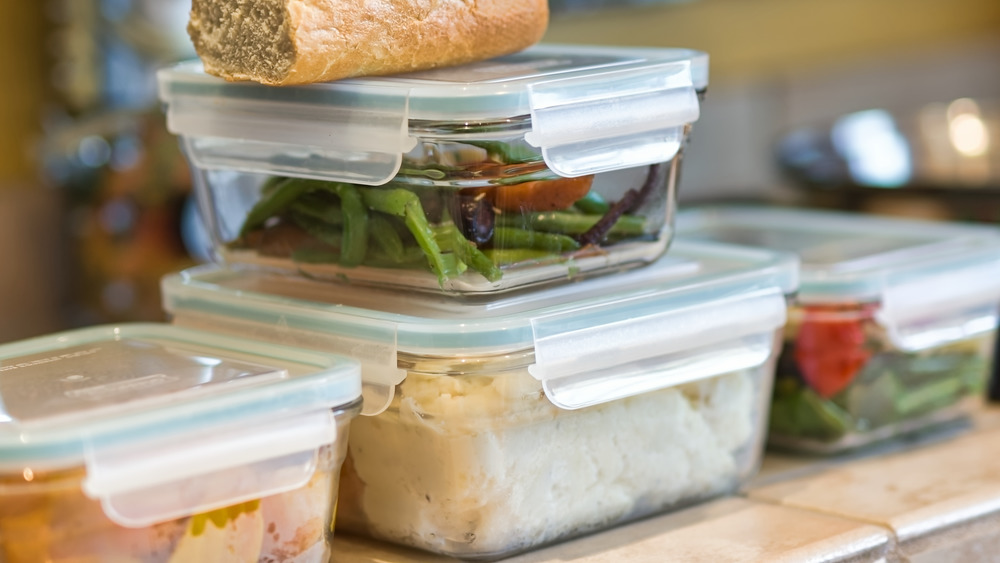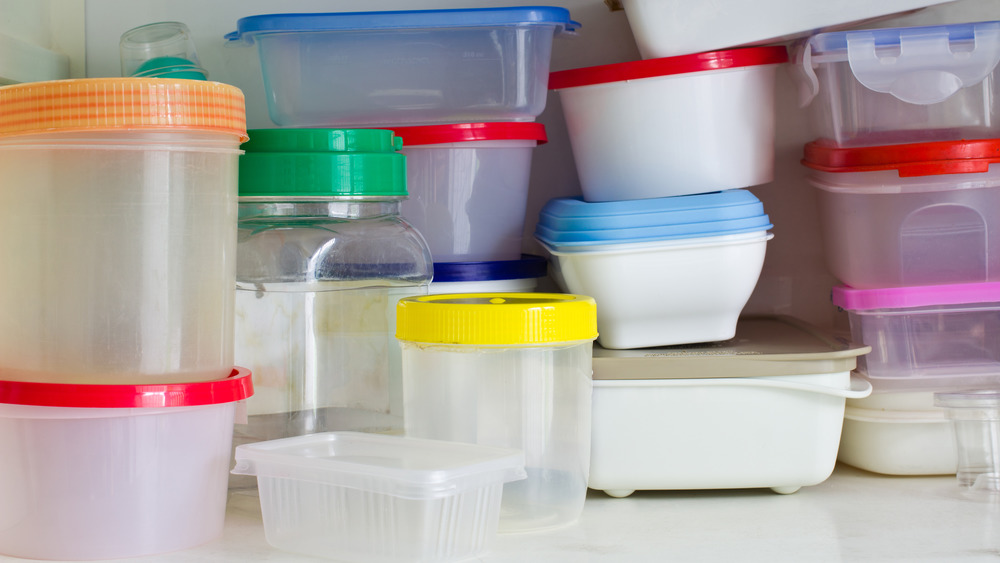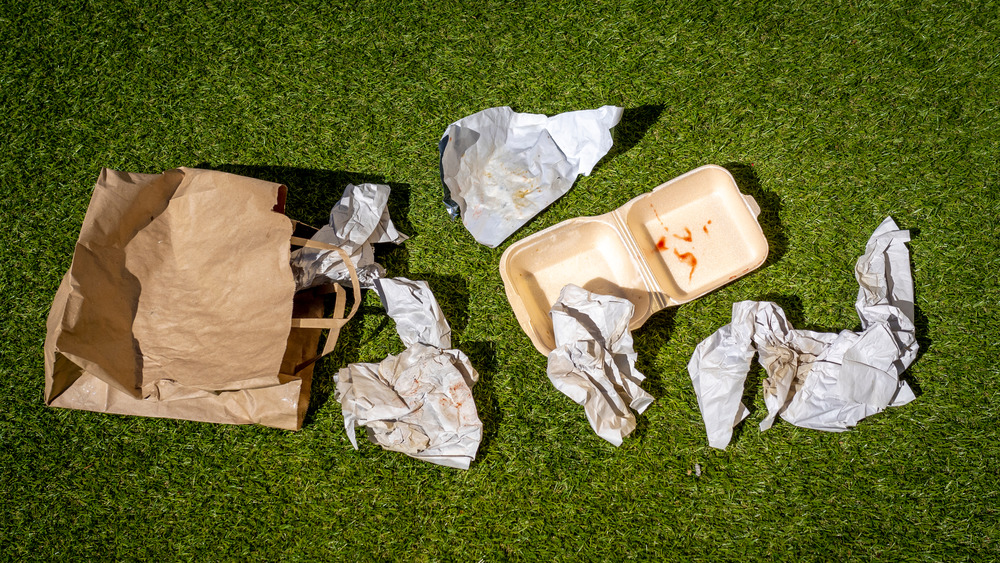Read This Before Storing Your Food In A Plastic Container
If there's one thing we're all getting used to in the time of pandemic cooking, it's an overload of leftovers in our fridge. Between the batches of soup, roasted chickens, copycat IKEA meatballs, not to mention the bread-baking experiments, TikTok-inspired tortilla wraps, and other internet-born dessert hacks ... let's just say we've been cooking up a storm faster than we can eat it. Thank goodness for Tupperware, right? Well, not exactly.
Turns out that storing your food in plastic containers can come with some serious risks. Specifically, some of these plastic products can potentially leach toxic chemicals into your food (via Harvard Medical School). Here's the good news. We've come a long way in the last several decades when it comes to creating safer plastic for food packaging and storage (via Toxic-Free Future). However, there are still some problematic ingredients that may show up in your plastic, and so make their way into your body. Read on for what you need to know before storing your food in a plastic container.
Your storage containers may contain toxins
BPA (bisphenol A) is an ingredient found in many older plastic products (via National Institutes of Health). In the early 2000s, it was found to disrupt brain and reproductive development in children, and increase risk for breast cancer, obesity and other health effects. Many companies have since ceased using BPA in their products, though the FDA maintains that it is safe. It's worth noting though that in 2012 the FDA banned the use of BPA in baby bottles (via NPR).
BPS (bisphenol S) is another potentially harmful ingredient commonly found in plastics. As concern over the use of BPA rose, many switched to using BPS instead. However, according to research, BPS isn't really any safer than its predecessor and can cause many of the same health issues (via Live Science).
Trusty old plastic wrap could be problematic as well. Plastic wrap in the U.S. is made with an ingredient known as DEHA, which is very similar to phthalates, which help make plastic wrap so soft and clingy (via National Center for Health Research). However, according to Dr. Andrew Weil's website, there is some limited research to suggest that these types of chemicals can cause reproductive issues and developmental issues in children.
Eating out also poses risks
The plastic that your fast food comes wrapped in may pose risks as well. Quick-serve chains need food packaging that is not only sturdy, but resistant to water, grease, and food stains. Unfortunately, that has led to a lot of packaging created with synthetic chemicals known as PFASs or PFCs (via Environmental Working Group). They can also be found in things like pizza boxes and microwave popcorn bags (per My Recipes).These chemicals accumulate in the body over time, and have been associated with a number of diseases, including cancer. The other concern with these chemicals is that they don't break down, heightening their environmental impact (via Environmental Defense Fund).
According to experts cited by Consumer Reports, your best and safest bet is to stick with glass and stainless steel containers when possible. In terms of food wrap, there are plenty of alternatives to plastic wrap these days, including Bee's Wrap (which has its pros and cons, as TheKitchn explains). And whatever you do, never heat up your food in a plastic container. That only increases the rate at which the chemicals leach out (via Consumer Reports).


